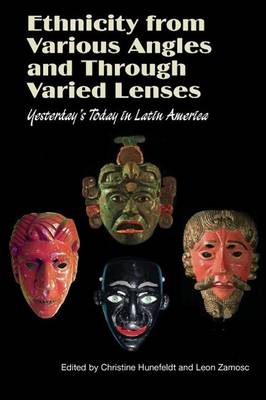Ethnicity is divided into three main sections, with editorial introductions to each part. Part One includes readings of the connections between ethnicity, nationality and memory, namely how indigenous groups today and in the past chose to represent themselves and their social environment, and how indigenous peoples have responded to state-imposed national and ethnic identities ("various angles"). Part Two engages with contributions that centre around how ethnicity is construed through ritual, geography, and literary works ("various lenses"). Part Three sets out to explain how indigenous knowledge becomes commodified, reinvented, and re-appropriated from the "outside", namely NGOs, pharmaceutical companies, and the state ("various angles"). The Essay Contributions were first presented at the First Conference on Ethnicity, Race, and Indigenous Peoples in Latin America and the Caribbean (ERIP) organised by the Latin American Studies Association (LASA), held at the University of California, San Diego in 2008. This volume provides a rich and new reading of the several ways in which ethnicity has been perceived and represented by several historical actors, including indigenous peoples themselves, and how ethnicity, in the wake of such varied realities and perceptions, has been transformed over the course of time. It is essential reading for all Latin American Studies practitioners.
- ISBN10 184519361X
- ISBN13 9781845193614
- Publish Date 1 September 2010
- Publish Status Out of Print
- Out of Print 5 March 2021
- Publish Country GB
- Imprint Liverpool University Press
- Format Paperback
- Pages 256
- Language English
